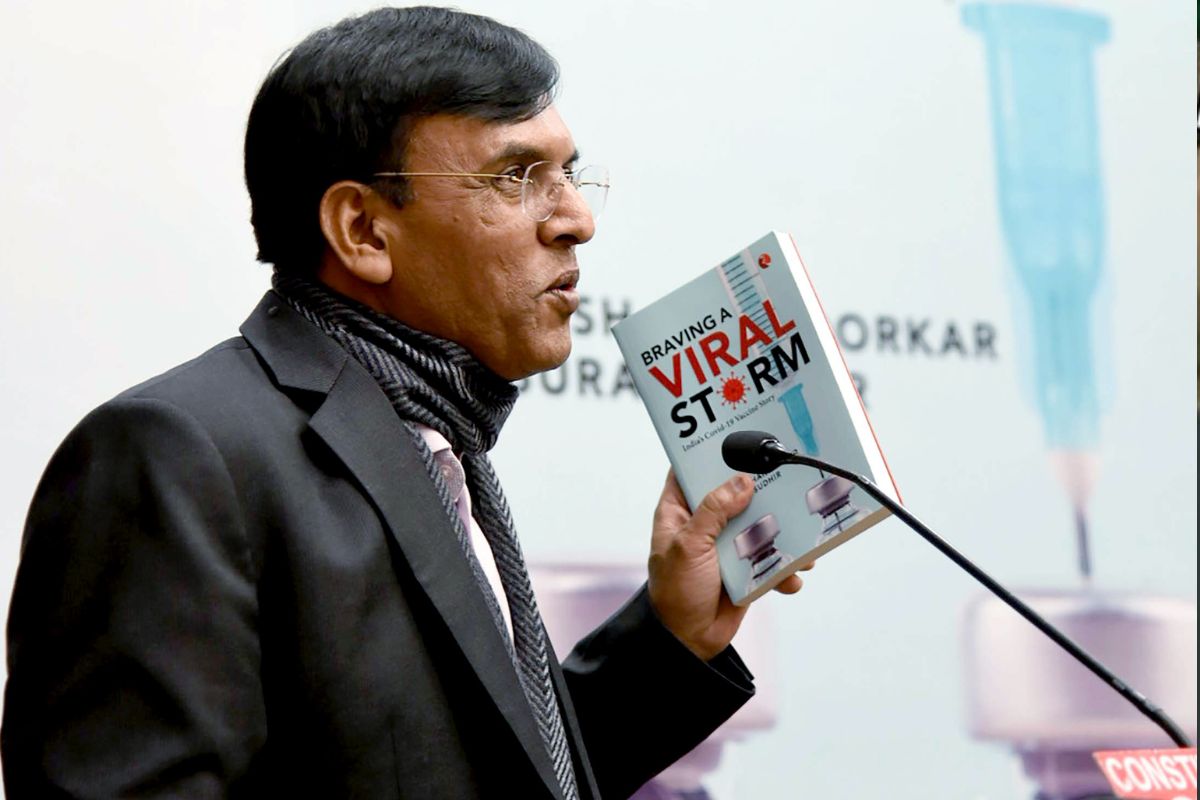Doctor’s guide to paediatric dermatology
Dr Sandipan Dhar's book Sishu Twak Ojana Katha was released today in the presence of Dr Apurba Ghosh, Tota Roy Chowdhury and Rupankar Bagchi in attendance.
India could have its own healthcare model which would be aligned to its regional requirements: Union Minister for Health & Family Welfare Dr Mansukh Mandaviya.

(Photo: ANI)
The Covid-19 pandemic has provided India with an opportunity to strengthen its healthcare infrastructure and delivery systems, Union Minister for Health & Family Welfare Dr Mansukh Mandaviya said today while chairing the eighth meeting of the Mission Steering Group (MSG) of the National Health Mission (NHM).
For the first time, health was being linked with the agenda of development under a holistic approach undertaken by the government, he said.
The MSG is the apex decision-making body of NHM that takes decisions on policies and programme implementation under the mission. The meeting was also attended by Housing and Urban Affairs Minister Hardeep Singh Puri, Minister of Jal Shakti Gajendra Singh Shekhawat, Minister of Social Justice & Empowerment Virendra Kumar and Minister of State for Health Bharati Pravin Pawar and senior officials from their ministries.
Advertisement
Highlighting the achievements under NHM, Mandaviya stated that “Exceeding the target of 1.50 lakh Ayushman Bharat- Health & Wellness Centres (AB-HWC) by 31 December 2022, more than 1.54 lakh Sub Health Centres and Primary Health Centres have been transformed as AB-HWCs. In sync with the approach of the National Health Policy 2017 (NHP 2017), AB-HWCs are providing comprehensive primary healthcare closer to the communities. As many as 12 health services packages are available free of charge.”
He said India could have its own healthcare model which would be aligned to its regional requirements, and customised to local strengths and challenges.
The MSG was informed about the ‘Holistic Approach’ adopted by NHM encompassing change in programme design to respond to changing health care needs. This includes working with a Saturation Approach; shifting from an Incremental to a Comprehensive approach (Ayush, Tertiary Care & Expanded package); enhancing self-reliance through Diagnostics, Drugs & AI; creating a National Digital Health Ecosystem and future-ready and resilient health systems; and shift from MDGs to SDGs.
The MSG was apprised of the achievements made under NHM during the past few years.
Participants at the meeting appreciated the progress made under NHM through focused programmes and support provided to states over the years. Several suggestions were offered including the approach to the elimination of diseases like cervical cancer, increasing the number of AB-HWCs under medical colleges, the need for a more detailed analysis of the urban health sector, and enhancing synergy between the Centre and states for timely matching fund allocation.
Advertisement